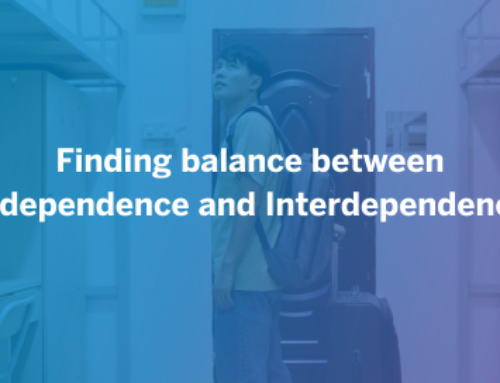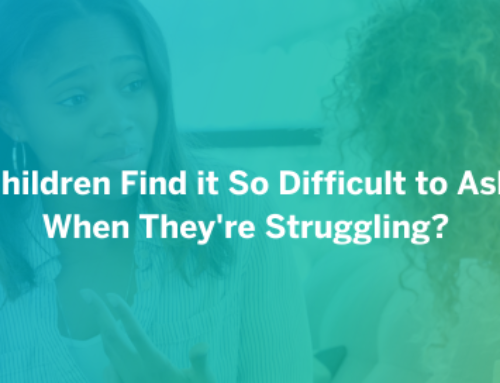
What is a drug addict?
I’d like to begin this blog with a little exercise. To start, bring to mind the image of a drug addict. Remember that image. What do you see? Is it a famous musician who died from an overdose? Is it a homeless person? Maybe it’s a tv show character who turned their life upside down. Is the individual in your mind’s eye missing teeth? Are their clothes wrinkled and dirty? Now take a moment to imagine the future addict’s upbringing. What does it look like? Is it filled with trauma and chaos? Is there a parent missing? Surely someone else besides the potential addict has a problem with drugs.
What drugs is this imaginary addict using? Does addiction imply the use of ‘harder drugs?’ Are they using drugs every single day? Could it be an addiction if their use was occasional? Take a moment to fill in the rest of the details of the mental stereotype. Does this person have a college degree? Do they excel in their career? Do they have a criminal record? Have they been to rehab?
Perhaps, like us here at LSIS, you have found that drug addiction encompasses such a large range of behavioral patterns that a single image could not suffice. In reality, a hundred people could read that prompt and conjure up vastly different images, all of whom embody the condition of drug addiction. In my experience, working in the field of substance abuse prevention very quickly disproved any previously held stereotype of drug addiction. The diversity among our prevention speakers across many categories is substantial. As is the diversity in the experiences of students who discuss their own or their family’s substance abuse issues with us after presentations.
What does the research show?
The extensive diversity of drug addiction is not just a theory. It is not a baseless observation made here at LSIS. Research on the etiology of drug addiction has revealed an interminable number of risk factors that correlate with drug use. A meta-analysis conducted by the NIH on etiological research revealed such an expansive range of risk factors (e.g., Genetic Vulnerability, Physiological Vulnerability, Psychosocial Factors, Personality Traits, Familial Factors, Peer Factors, Sociocultural or Environmental Factors) with a strong correlation to the development of addiction that deriving a straightforward etiological criterion is nearly impossible.
The research reveals what many in recovery have noticed. There are many paths to drug use, and many faces of addiction. Some of us experienced trauma as children, while some had a stable home. Some of us had a family member who suffered from addiction while others have never seen a family member under the influence. Some of us suffered from severe mental health diagnoses while some were neurotypical until the onset of drug use. Some of us grew up wealthy, while others grew up poor. Some of us ‘only’ smoked weed, while others used a needle. The term ‘risk factor’ is so varied and wide-ranging that one may conclude that the disease of addiction truly does not discriminate. Simply put, the only risk factor that appears in every case is the initiation of drug use. Nevertheless, in our discussion, students and teachers frequently reveal strong and specific preconceived expectations for addiction.
Weed is very addictive
Some of the most common stereotypes that I hear during my presentations regard the drugs that must be used for this use to be problematic. Our presenters frequently run into varying levels of pushback from students depending on the substance they are presenting about. Many students seem to think to a certain point, drugs aren’t very detrimental. If one is ‘only’ smoking, they haven’t yet escalated to the point of danger.
I’ve discussed the addictive nature of cannabis extensively in previous blogs. As research about the detrimental long-term effects of cannabis on memory and IQ continues to be published, as treatment centers fill up with an increasingly large percentage of primary-cannabis-use patients, people are paradoxically rating weed as less and less dangerous. There is a cultural stereotype that ironically dodges what is likely drug addiction in its most common form.
It isn’t just the students who perpetuate this stereotype. Teachers often ask questions that directly diminish the possible danger of cannabis: “So it started just with smoking, but smoking led you to more dangerous things. Would you say that weed is a gateway drug?” This question makes no sense to me. Smoking weed is the most addictive behavior I’ve ever engaged in. It is the drug that drove me into treatment, that substantially damaged my mental health, and that destroyed my relationship with my family for years. This stereotype of weed as the gateway drug to harder things seems to me to be driven by the same type of assumptions and lies that led people to once consider cigarettes to be safe: a lot of famous people who purport to have no problem do it.
The typical image of a drug addict – stealing, lying, ending up in treatment – doesn’t align with the typical image of a weed addict or stoner. Through this stereotype regarding the outer appearance of addiction, weed addicts can fall into a different category. Famous addicts of cannabis who maintain that they only smoke seem to contradict the perceived danger of the ‘gateway’ drug. You would think that our collective experience with cigarettes taught us that outside appearances and inner experiences can drastically conflict. This experience should have also taught us that broad cultural normalcy doesn’t make a drug less addictive or dangerous.
The honest definition.
My answer to that teacher’s question is that the consequences, pain, and addiction caused by weed in my first two years of substance use were as painful and detrimental as anything else I went through. I tell them that despite the escalation of my use that did occur, my deepest fear constituted the idea of needing to stop smoking weed but being unable to ever do so. I tell them that weed was the only drug that society told me I could do every day without being an addict. It was thus the hardest to stop.
So, if a drug addict doesn’t have to be using cocaine, pawning off his dearest belongings, and losing teeth, then what does addiction look like? Does it look like calling the dealer from the hospital? Does it look like totaling your car or dropping out of school? What does it mean to be truly addicted?
I like to reframe the false image of drug use by asking questions that applied to my story. I was a drug addict long before outside consequences were visible. Here are some examples. Are you a drug addict, if you are willing, to be honest with your therapist about all mental health concerns other than drug use, which you minimize or leave out altogether? Does addiction look like lying to your family consistently and choosing to be with your ‘friends’ doing drugs during the time your family wanted to spend together? If you manipulate your family for money to buy weed, are you addicted? If the friend you valued so much isn’t invited anymore because he won’t smoke, are you addicted? If the idea of never smoking again seems implausible and scary to you, are you addicted? If your identity is reliant upon your smoking habit, are you addicted?
Esteemed neuroscientist Andrew Huberman defines addiction as a “progressive narrowing of the things that bring you pleasure.” He elaborates that “Happiness is a progressive expansion of the things that bring you pleasure. The former emerges passively. The latter takes work.” Dr. Robert Lustig elaborates on this effect, explaining that addiction is the pursuit of pleasure rather than happiness. He articulates that pleasure involves taking, while happiness involves giving. On the extreme ends of pleasure, indexed by dopamine increases which are indeed delivered by weed, addiction occurs. This human tendency to replace the difficult pursuit of happiness with the passive pursuit of pleasure is a perfect description of what happened to me and so many of my friends.
It is time to get honest
With current adolescent mental health statistics resembling something of a crisis, the accurate definition of addiction is a harrowing warning about the effect we have on children when misleading them about substance abuse. It is incumbent upon us as educators to give an honest definition, even if it radically contradicts pop culture. Rates of use and approval of use are rising at an alarming rate. If students have a misunderstanding of drugs expressed by cultural icons and educators alike, then preventing this increase is virtually impossible. Thus, despite the uphill battle of standing in contradiction with broadly held stereotypes and cultural norms, it is necessary to stand firm in the fight to expose the dangerous, and honest truth about cannabis use, and the real definition of a drug addict.
By: Danny Z
Danny is a in house LSIS Prevention Speaker.








Leave A Comment